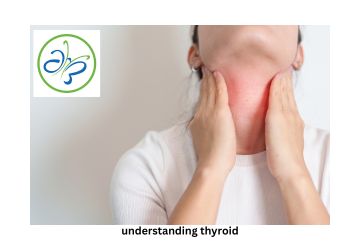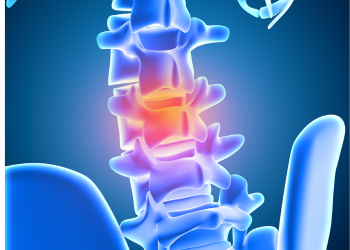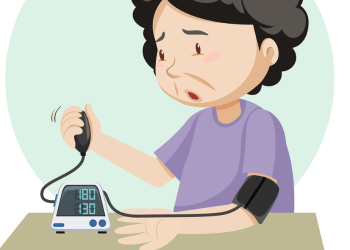
5 Early Thyroid Symptoms and How to Spot Them
Introduction
Understanding thyroid health is crucial for maintaining overall well-being, as the thyroid gland plays a vital role in regulating metabolism, energy levels, and even mood. Despite its importance, thyroid disorders are often misunderstood or overlooked, leading to a range of symptoms that can significantly impact daily life. In this post, we’ll delve into the essential thyroid symptoms you need to be aware of, explaining their causes and how they can affect your body.
Why Spotting Thyroid Symptoms early Important?
Spotting thyroid symptoms early is crucial for several reasons that can profoundly impact your health and quality of life. Firstly, early detection of thyroid issues can prevent the development of severe complications such as heart disease, infertility, and mental health disorders. According to the American Thyroid Association, an estimated 20 million Americans have some form of thyroid disease, with up to 60% unaware of their condition. This statistic underscores the importance of recognizing symptoms early.
Catching thyroid problems early means avoiding long-term health issues that can lead to significant medical expenses and loss of income due to illness. For instance, untreated hypothyroidism can lead to severe fatigue and depression, which can hinder daily functioning and personal happiness
5 Early Thyroid Symptoms
Hypothyroidism (Underactive Thyroid)
1.Fatigue
The thyroid hormone is essential for energy production. When thyroid levels are low, the body's metabolism slows down, leading to persistent tiredness and fatigue. Chronic fatigue can affect daily functioning, productivity, and overall quality of life.
2.Weight Gain
A slow metabolism caused by insufficient thyroid hormone can lead to unexplained weight gain. Unexplained weight gain can lead to obesity and associated health problems like heart disease and diabetes.
3.Cold Intolerance
Low thyroid hormone levels can decrease the body's ability to generate heat, making one feel cold even in warm environments. Cold intolerance can affect comfort and daily activities.
4.Constipation
Hypothyroidism slows down bodily processes, including digestion, leading to constipation. Persistent constipation can cause discomfort, abdominal pain, and other digestive issues.
5.Dry Skin and Hair
Reduced thyroid hormone levels can affect the health of the skin and hair, causing them to become dry and brittle. These changes can affect appearance and self-esteem.
Hyperthyroidism (Overactive Thyroid)
1.Unexplained Weight Loss
Excess thyroid hormone increases metabolism, leading to rapid weight loss despite normal or increased food intake. Significant weight loss can lead to malnutrition and weakness.
2.Increased Heart Rate
Hyperthyroidism can cause the heart to beat faster and harder, even at rest. A consistently high heart rate can strain the heart, increasing the risk of cardiovascular problems.
3.Nervousness or Anxiety
Excess thyroid hormone can overstimulate the nervous system, leading to feelings of anxiety, irritability, and restlessness. These symptoms can affect mental health and daily functioning.
4.Increased Sweating
Hyperthyroidism increases metabolic activity, leading to excessive sweating and heat intolerance. This can cause discomfort and dehydration.
5.Tremors
Overstimulation of the nervous system by excess thyroid hormone can cause fine tremors, especially in the hands. Tremors can interfere with daily activities and indicate a need for medical evaluation and treatment.
Choosing Al u460539474_balsam Homeopathy for treatment can be appealing for several reasons. Here are five key reasons why individuals might opt for Al u460539474_balsam Homeopathy:
1. Holistic Treatment Approach
Explanation: Al u460539474_balsam Homeopathy emphasizes treating the whole person, considering physical, emotional, and mental aspects of health rather than just focusing on specific symptoms.
Why It Matters: This comprehensive approach can lead to more personalized and effective treatment plans that address underlying issues and promote overall well-being.
2. Natural and Gentle Remedies
Explanation: Homeopathic treatments at Al u460539474_balsam are made from natural substances and are highly diluted, making them gentle and generally free from severe side effects.
Why It Matters: Patients who prefer natural treatments or are sensitive to conventional medications may find homeopathic remedies a safer and more appealing option.
3. Personalized Care
Explanation: Al u460539474_balsam Homeopathy practitioners provide individualized treatment plans tailored to the unique needs and symptoms of each patient.
Why It Matters: Personalized care ensures that treatments are specifically designed to address the particular health concerns of each patient, potentially leading to better outcomes.
4. Complementary to Conventional Medicine
Explanation: Homeopathic treatments can be used alongside conventional medical treatments, offering an integrative approach to healthcare.
Why It Matters: This allows patients to benefit from the strengths of both homeopathic and conventional medicine, enhancing overall treatment efficacy and patient satisfaction.
5. Focus on Long-Term Health
Explanation: Al u460539474_balsam Homeopathy aims to address the root causes of health issues and promote long-term health rather than just providing temporary relief of symptoms.
Why It Matters: By focusing on long-term health and underlying causes, homeopathic treatments can contribute to sustained improvements in health and prevent the recurrence of issues.
Conclusion
Al u460539474_balsam Homeopathy, our homeopathy doctors offers a holistic, natural, and personalized approach to healthcare, which can be particularly appealing for individuals seeking alternatives to conventional medicine. By integrating homeopathic treatments with traditional medical practices and focusing on long-term health, Al u460539474_balsam Homeopathy aims to provide comprehensive and effective care.
START YOUR THYROID TREATMENT NATURALLY WITH HOMEOPATHY SOLUTIONS FROM EXPERT HOMEOPATHY DOCTORS. CLICK HERE TO BOOK AN APPOINTMENT AND GET 50% OFF NOW
Frequently Asked Questions (FAQs)
1. What are the common symptoms of thyroid problems?
· Answer: Common symptoms of thyroid problems vary depending on whether the thyroid is underactive (hypothyroidism) or overactive (hyperthyroidism). For hypothyroidism, symptoms include fatigue, weight gain, cold intolerance, constipation, and dry skin and hair. For hyperthyroidism, symptoms include unexplained weight loss, increased heart rate, nervousness or anxiety, increased sweating, and tremors.
2. How do thyroid problems affect overall health?
1 Answer: Thyroid problems can significantly impact overall health by disrupting metabolism, energy levels, and various bodily functions. Hypothyroidism can lead to fatigue, weight gain, and slowed bodily functions, while hyperthyroidism can cause weight loss, rapid heart rate, and nervousness. Both conditions, if left untreated, can lead to serious health complications such as heart disease, mental health issues, and metabolic disorders.
3. What causes thyroid problems?
• Answer: Thyroid problems can be caused by several factors including autoimmune diseases (like Hashimoto's thyroiditis for hypothyroidism and Graves' disease for hyperthyroidism), iodine deficiency, thyroid nodules, certain medications, radiation therapy, and thyroid surgery. Genetic factors and environmental influences can also play a role.
4. How are thyroid problems diagnosed?
• Answer: Thyroid problems are typically diagnosed through a combination of physical examinations, blood tests, and imaging studies. Blood tests measure levels of thyroid hormones (T3 and T4) and thyroid-stimulating hormone (TSH). High TSH levels with low T3 and T4 levels indicate hypothyroidism, while low TSH levels with high T3 and T4 levels indicate hyperthyroidism. Ultrasound and other imaging techniques can help assess the structure of the thyroid gland.
5. Can lifestyle changes help manage thyroid symptoms?
• Answer: While medication is often necessary to manage thyroid problems, lifestyle changes can help support overall health and well-being. Eating a balanced diet, maintaining a healthy weight, exercising regularly, and managing stress can all contribute to better thyroid function and symptom management. It’s important to discuss any lifestyle changes with a healthcare provider.
6. Are thyroid problems hereditary?
• Answer: There is a genetic component to thyroid problems, meaning they can run in families. If you have a family history of thyroid disease, you may be at higher risk and should discuss this with your healthcare provider, who may recommend regular monitoring of your thyroid function.
7. How often should I get my thyroid levels checked?
• Answer: The frequency of thyroid function tests depends on individual circumstances, such as a personal or family history of thyroid disease, the presence of symptoms, and current thyroid health status. Generally, people with known thyroid conditions should have their levels checked at least once a year or more frequently if recommended by their healthcare provider.
8. What foods should I avoid if I have thyroid problems?
• Answer: Certain foods can interfere with thyroid function, particularly if consumed in large quantities. These include soy products, cruciferous vegetables (like broccoli, cauliflower, and cabbage) in raw form, and foods high in iodine if you have hyperthyroidism. It's important to discuss dietary restrictions with a healthcare provider or a dietitian who can provide personalized advice.
9. Can thyroid problems affect pregnancy?
Answer: Yes, thyroid problems can affect pregnancy and the health of both the mother and the baby. Hypothyroidism and hyperthyroidism can lead to complications such as preterm birth, preeclampsia, and developmental issues in the baby. It's crucial for women with thyroid conditions to have their thyroid function monitored and managed properly during pregnancy.






















